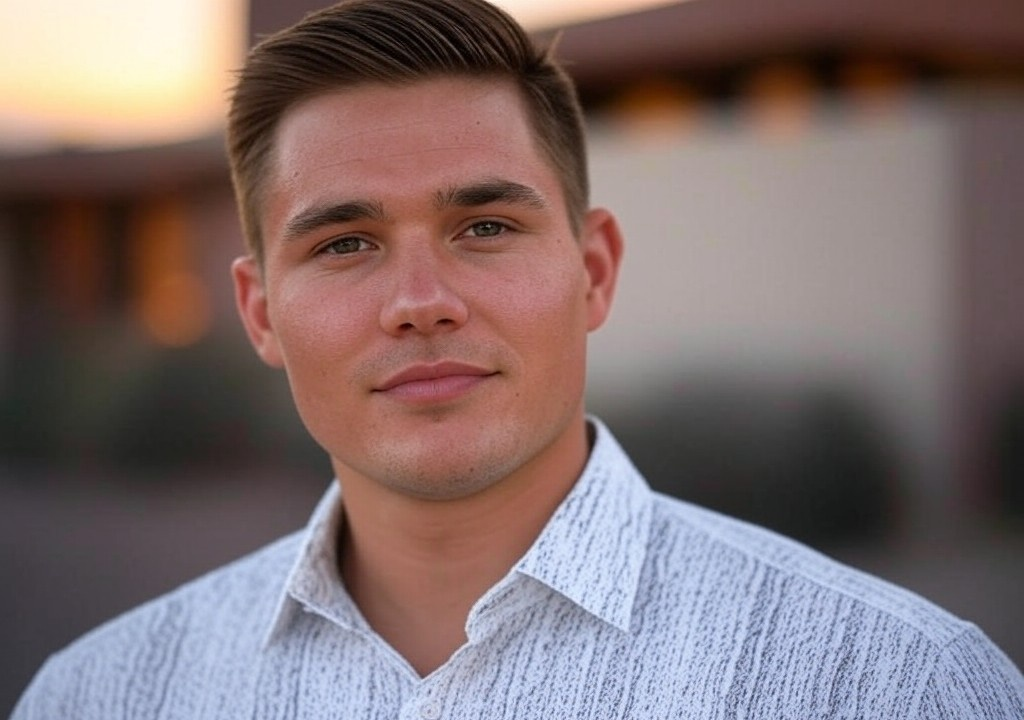We all have scars. Some sit loud and proud, carved into knees from childhood bicycle crashes. Others are quieter—the ones on your heart you only notice when a specific song plays, or when you catch a particular name in a crowded room. But here’s the thing about scars: they’re stories wrapped in skin—physical, emotional, or otherwise. The good, the bad, and the painfully awkward all leave their marks. And while some scars sting a little more than others, they’re proof that you lived, loved, and survived to tell the tale.
Let me tell you about mine.
A Cactus and a Lesson
I was seven when I got my first real scar. My family lived just north of Scottsdale, near the kind of desert that stretches out with an eerie sort of beauty—endless sand, sky, and clusters of Saguaro cacti standing like they’d been hired to keep a vigil. On a dare (because, of course, it was a dare), I tried to climb one. Spoiler alert: you don’t climb a cactus unless you’re a cartoon character. I lost my balance and landed hard, my arm raking against those tiny, malicious spines.
The scar’s still there, faint but visible, and every time I see it, I laugh. Not because it doesn’t hurt anymore, but because I marvel at my seven-year-old audacity. That mark reminds me I was once wild, foolish, and unreasonably brave. It taught me a lot about determination—and consequences.
Fast forward to adulthood, and I often think of emotional scars the same way. They’re there for a reason. They remind us of our daring attempts to climb life’s metaphorical cacti, whether it’s falling for someone new, ending something that wasn’t right, or navigating the messy layers in between.
So what can these scars teach us about relationships? Buckle up; we’re about to uncover some truths.
Scars Are Proof You Showed Up
Here’s the thing about life’s bumps and bruises: they only happen when you put yourself out there. Whether you were blindsided by a breakup or dealt a bruised ego after declaring your feelings for someone who didn’t feel the same, those cracks in your foundation show you went all in.
There’s something beautiful about that, isn’t there? It takes guts to choose vulnerability—to step into uncertain terrain knowing full well it might hurt. You didn’t just sit on the sidelines. You showed up for the game, and even if you limped off the field, you dared to play.
Every scar is a reminder of the risks you took and the lessons you gleaned in the process:
- The espresso martini first date might’ve crashed and burned, but now you know what you don’t want.
- The painful end of a long-term relationship? It cracked you open in ways that taught you resilience.
- That awkward moment you confessed your crush in a public setting? OK, cringe-worthy, but also, you survived (and thrived, thank you very much).
The Stories in the Scar Tissue
If scars are stories, then let’s write the second act. A literal scar might remind you to wear sunscreen or avoid cacti forever, but emotional ones? Those train you to love smarter, better, and more authentically.
For example, if your last relationship left you feeling like you gave more than you got, maybe your ‘scar story’ now serves as proof of what you deserve going forward. Or if you ghosted someone you cared about because you were afraid of intimacy (been there, sort of), that scar reminds you to do better next time.
Our scars hold us accountable. They whisper, “You’ve been through this before. What have you learned?”
Here’s a little exercise: Think about one personal scar. (Physical, emotional, doesn’t matter.) What story does it tell? Did it come from a risk you’re proud of? A mistake that made you wiser? Find the wisdom in the wound—that’s where the gold is.
Why We’re Drawn to Imperfections
I’ll admit it—I have a weird soft spot for people who can unapologetically own their quirks and flaws. Scars? Same thing. Whether you’re rocking a knee scar from a failed skateboard trick or some deep emotional baggage from a love story that unraveled, it’s the humanity in those marks that makes you interesting. You’re textured. Complex. Relatable.
Remember the show Parks and Recreation? There’s this great line where Leslie Knope says, “You’re like a museum. A museum that has a video you can watch of what happened to cause all the scars.” That perfectly sums it up: scars draw people in because they make you unique.
Raw honesty will get you further than striving for perfection. People notice when you’re real. Share your stories—not to play the victim, but to own your experiences. Vulnerability invites connection. Every scar tells the world, “I’ve been through something, and I’m still standing.”
Healing Isn’t the Same as Forgetting
Desert hikes taught me a thing or two about scars and healing. No matter how sharp the prick, wounds aren’t forever. They scab over, fade, and become reminders—not of the pain, but of the strength it took to keep going. Healing doesn’t mean erasing the past. You carry it with you, use it, learn from it.
You know that old metaphor about breaking a bone and it growing back stronger? Same thing applies here. When you heal from heartbreak or rejection, you’re reinforcing a part of yourself that can better handle the next tumble. The scar becomes a badge of honor. You took the hit and came out wiser.
Healing takes time, so give it space. And when you’re ready, notice how the story of that scar has changed: from pure pain to something you grew through. For me, the cactus scar isn’t about the fall anymore—it’s about getting back up and not letting fear win. (Well, that and learning to avoid daredevil stunts near thorns.)
Scars as Connection Points
Here’s where it gets interesting: our scars don’t just tell our stories—they connect us to others. Think about any bond you’ve ever had with someone that deepened after sharing a tough or embarrassed-out-loud moment. Scars are magnetic that way.
When you open yourself up about your past—hardships, heartbreaks, awkward breakdancing attempts that went south—and the other person says, “No way, me too,” it cements a special kind of trust. Shared vulnerability is the birthplace of intimacy.
This doesn’t mean dumping your tragic backstory on the second date. Start small: a quick anecdote, a lesson learned, a lighthearted quip about how life “cactus-ed” you in the past. Those shared moments add depth.
Closing Thoughts: Wear Your Scars Proudly
Here’s the truth: scars don’t make you less lovable. They make you human. They tell stories of times you tried, stumbled, and came back strong. The ones on your body, your heart, or your ego? They’re beautiful proof of a life well-lived.
So, whether you’re out there dating for the first time post-breakup or reflecting on the marks left by a love you’ve lost, remember—scarred doesn’t mean broken. It means experienced. It means wiser.
And hey, the next time someone notices one of your scars and asks about it, don’t shy away. Tell them the story. You never know—it might just lead to a connection even deeper than you imagined.




















